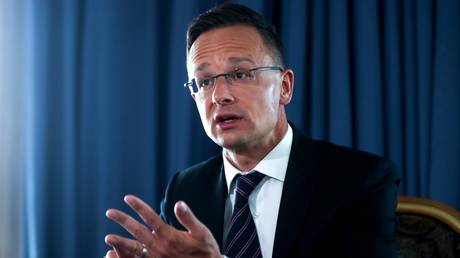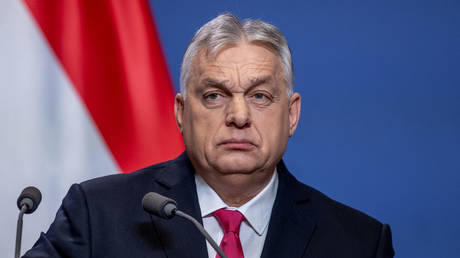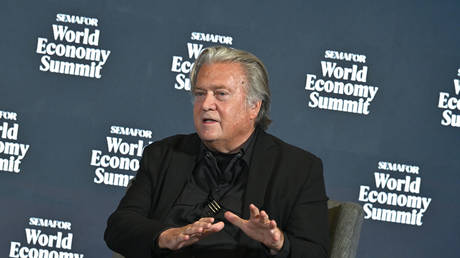
Beijing’s roadmap for peace has significant advantages, Foreign Minister Peter Szijjarto has said
Hungary supports China’s plan to settle the Ukraine conflict, Foreign Minister Peter Szijjarto said on Monday, while accusing Europe of displaying a bellicose mentality.
Speaking during talks with his Chinese counterpart Qin Gang in Beijing, Szijjarto stressed that Budapest “is arguing for peace… to come as soon as possible.”
“Unfortunately, the war rhetoric globally is extremely strong. Therefore, we need to increase the voice of the peace camp,” the minister stated. “And in the peace camp, we attach huge significance to the role [of China].”
“We appreciate your peace plan a lot. We hope it’s going to be a basis for discussing… peace in our neighborhood,” Szijjarto added.
Before heading to Beijing, the Hungarian diplomat underlined the importance of peacemaking efforts at a time when “Europe is gripped by a psychosis of war.”
In late February, China released its 12-point roadmap to end the Ukraine conflict, urging Moscow and Kiev to resume dialogue “as soon as possible” and voicing support for any peacemaking efforts.
Beijing also called for the abandonment of a “Cold War mentality” and for the sovereignty of all countries to be respected, while condemning unilateral sanctions which it said would not resolve the issue.
The roadmap, however, caused mixed reactions. While President Vladimir Putin praised the plan, noting that many of its provisions “are consonant with the Russian stance,” NATO Secretary General Jens Stoltenberg claimed that Beijing lacked “credibility” as it has refused to condemn Russia’s campaign in Ukraine.
Meanwhile, EU foreign policy chief Josep Borrell described the plan as “a set of wishful considerations,” claiming that “the only thing that can be called a peace plan is [Ukrainian President Vladimir] Zelensky’s proposal.”
Among other things, the peace plan presented by Kiev last year demanded that Russia withdraw from all territories that Ukraine claims as its own and pay war reparations. The Kremlin dismissed the initiative, claiming it does not take into consideration “the realities on the ground,” including the new status of four former Ukrainian regions as part of Russia.




